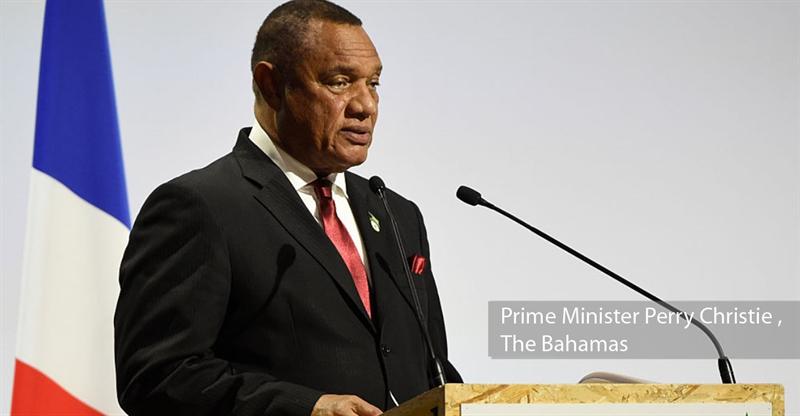The Bahamas could vanish due to sea level rise if urgent action is not taken to reverse climate change.
 Prime Minister Perry Christie is warning that unless urgent actions are taken to reverse the devastating impacts of climate change, the Bahamas might soon be no more.
Prime Minister Perry Christie is warning that unless urgent actions are taken to reverse the devastating impacts of climate change, the Bahamas might soon be no more.
“With 80 percent of our land within one metre, or five feet, of mean sea level, business as usual with regard to climate change threatens the very existence of the Bahamas as we know it,” he said.
Hurricane Joaquin developed from a tropical storm into a near category five hurricane in 39 hours, slamming into the Bahamas in October, and leaving an estimated 100 million dollars in damage to the central and southern islands.
Prime Minister Christie said the damages amount to almost 10 percent of the country’s national budget.
“After experiencing Hurricane Joaquin where the sea rose and took weeks to recede, it is beyond doubt that the issue we face is with the rise of the sea level. It threatens our very existence,” Christie told the gathering at the UN climate change conference (COP21) underway in Paris. He added that the experience with the hurricane also shows that existing insurance structures are inadequate and often rely on legalisms which deny legitimate claims.
The Bahamas and other Small Island Developing States (SIDS) are seeing unprecedented droughts, extreme weather events, accelerating sea level rise and other life threatening impacts, and based on the science, more intense impacts are to be expected over time.
Christie said the Bahamas is now more vulnerable to climate change than in the history of that country, adding that already, with the global rise in temperature of less than 1 degree, the Bahamas is experiencing more intense storms and flooding.
“Recognizing that mitigation alone will not protect us, we have made concerted efforts to adapt to the adverse effects of climate change. We have strengthened building codes, built new coastal defenses, and relocated vulnerable communities all through use of our own national resources.We have also outlined the actions that the Bahamas will take in its efforts to assume responsibility for the country’s greenhouse gas emissions. Among them is the development of indigenous renewable energy resources with the goal of increasing the percentage in the energy mix to a minimum of 30 percent by 2030.
Nassau is confident that these actions will minimize the country’s already nominal contribution to emissions and hopes to convert these contributions to legally binding commitments that will be captured in an annex to the Paris agreement."
Christie added that the Bahamas is facing growing public and international pressure to adapt to the impacts of climate change and is at the same time expected to pursue a low carbon pathway and increase energy security. While he agrees that these are all very noble pursuits, he pointed out they are very “expensive and resource intensive.”
The Bahamian leader furthered that COP21 must adopt, at the end of next week, an international legally binding agreement under the convention that is in the form of a protocol and is applicable to all parties.
“We must also agree on a long term goal of keeping the average global temperature rise below 1.5 degrees Celsius. The 2 degrees goal which many espoused will lead to the loss of many countries and a 1.5 degree goal is not only desirable, it is achievable and feasible," he said. "Let us send a clear message to the world that we will fight for countries like the Bahamas to stay on the map into the next century.The existential threat to the survival of a number of small island developing states must be explicitly recognized in the Paris Agreement.”